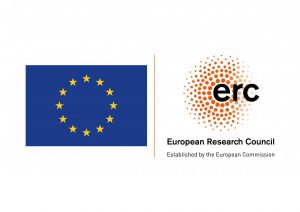Enchanted reception: Religion and the supernatural in medieval Troy narratives
Programme
Date: Thursday-Friday, 3-4 June 2021
Organizer: Novel Echoes: Tine Scheijnen and Ellen Söderblom Saarela
Registrations have now closed.
Participants can join via this page: https://www.novelsaints.ugent.be/enchanted-reception
Enchanted Reception is a two-day workshop with the aim of exploring the place of enchantment, myth, and religion in both Eastern and Western medieval narratives about Troy, or narratives that are influenced by motifs related or parallel to the narrative of the Trojan war. Together with scholars specialising in the different language traditions of medieval literature, we aim to explore the following questions from a transnational approach:
• How did contemporary (e.g. literary and socio-cultural) developments influence medieval adaptations of the supernatural and pagan religion in medieval Troy narratives?
• What role does the Troy motif play in other literary works?
• How are rationalization and “Christianization” used to deal with the medieval unease evoked by certain aspects of ancient mythology?
• From a comparative perspective, how can we map such processes transnationally, e.g. in the different language and literature traditions of the medieval world?
• How do these questions engage with themes such as gender, sexuality, ethnicity and cross-cultural connections?
Day 1
13.30 13.45 Welcome (Koen De Temmerman)
Session 1 Enchanting Amazons
Chair: Adam Goldwyn
13.45 14.15 Ellen Söderblom Saarela (Ghent University)
“Amazoneises, puceles corteises”: Interpreting the Amazon’s Place in Courtly Romance
14.15 14.45 Hilke Hoogenboom (Leiden University)
Femme Fatale: Penthesilea and the Last Stand of Chivalry in Guido delle Colonne’s Historia Destructionis Troiae
14.45 15.15 Allison Treese (University of Leicester)
“O flower of chivalry”: Christine de Pizan and the Christianization of Amazons
15.15 15.45 Discussion
15.45 16.00 Break
Session 2 Troy in the New World
Chair: Nicola McDonald
16.00 16.30 Megan Moore (University of Missouri)
The Mediterranean & the Translation of Emotional Communities: Troy & Legacies of Heroism
16.30 17.00 Susannah Wright (Harvard University)
Troy Translated, Troy Transformed: Case Studies in Medieval Celtic Literature
17.00 17.30 Tine Scheijnen (Ghent University)
Facing the Other: Medieval Reconceptions of Trojan Identity
17.30 18.00 Discussion
18.00 19.00 Breakout reception (using the platform “Wonder”)
Day 2
Session 3 Reshapings of Troy
Chair: Evelien Bracke
13.30 14.00 José Miguel de Toro (Catholic University of Concepción)
The War of Troy in Encyclopedic Literature: the Case of Lambert’s Liber floridus
14.00 14.30 Marco Brunetti (Bibliotheca Hertziana, Max-Planck-Insititut-für-Kunstgeschichte)
Figural and Literary Functional Recoveries of the Trojan Myths from Late Antiquity to Renaissance Age
14.30 15.00 Sophie Schoess (University of St Andrews)
Objects of Worship: The Place of Idols in Mediaeval Troy Narratives
15.00 15.30 Discussion
15.30 15.45 Break
Session 4 Byzantine Enchantments
Chair: Megan Moore
15.45 16.15 Adam Goldwyn (North Dakota State University)
The Sexual Politics of Myth: Rewriting and Unwriting Women in Byzantine Accounts of the Trojan War
16.15 16.45 Baukje van den Berg (Central European University)
Supernatural Rhetoric and Gendered Eloquence: Eustathios and Tzetzes on Hermes, Athena, and the Muses
16.45 17.15 Agnese Fontana (University of Genoa)
What If King David Had Fought at Troy? The Trojan Narrative in Byzantine World Chronicles (VI-XII Century): Religious, Historical and Political Issues
17.15 17.45 Discussion
17.45 – 18.00 End discussion
Chair: Ellen and Tine
For more information, please email Dr Tine Scheijnen (tine.scheijnen@ugent.be) or Dr Ellen Söderblom Saarela (ellen.soderblomsaarela@ugent.be).
This workshop is organized as part of and supported by the ERC project Novel Echoes and the FWO project The romance between Greece and the west (see https://www.novelsaints.ugent.be/).



